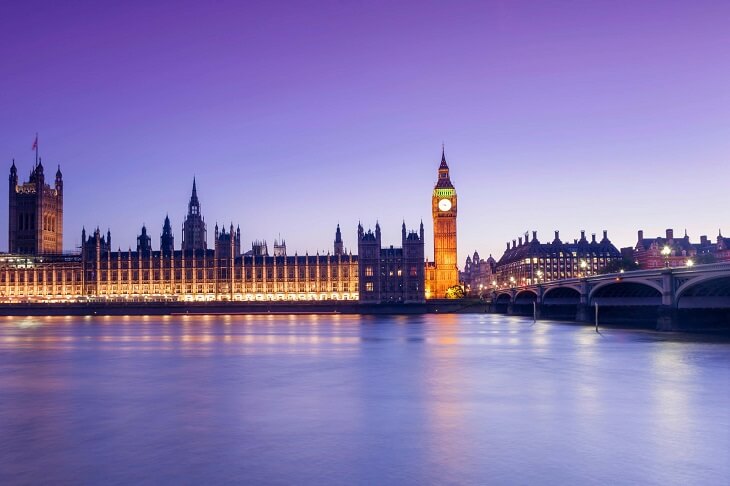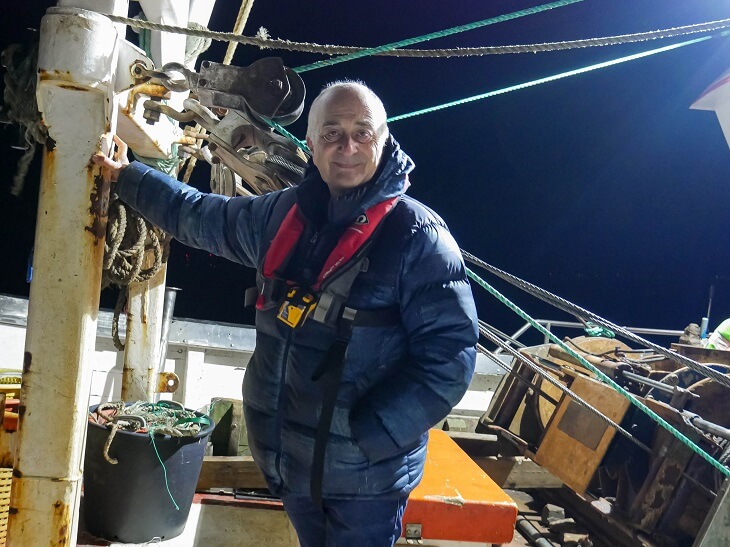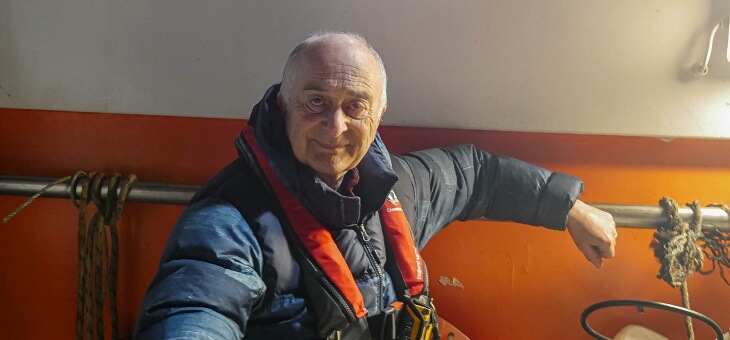When it comes to depicting history in the most engaging of ways, former Blackadder star Tony Robinson is the man for the job.
Having immersed himself in mud as part of hit archaeology show Time Team, and ventured across Britain for Walking Through History and Tony Robinson: Coast To Coast, the actor-turned-presenter knows as much about Britain’s great outdoors as he does the history books.
Now the 75-year-old East Ender has set out to discover more about the comings and goings on London’s main waterway in new series The Thames At Night with Tony Robinson.
The River Thames has a truly unique history, doesn’t it?
For the best part of 2000 years, the Thames was the lifeblood of London – and indeed of the whole of the south of England. In the 19th and the early 20th century it got so full, there was a time when you could actually cross the Thames by jumping from one ship to another. By the time I was growing up in the 1950s, the Thames just seemed like this smelly, dirty, irrelevant black ribbon in the middle of London. In the past 20 years, it’s been cleaned out, allowing this extraordinary transformation to take place during our lifetimes.

The river takes on an entirely new feel at night, which is the primary focus of the show
The fact is that all the work goes on at night – all the maintenance goes on, so much of the transportation goes on, all the servicing, and we’re blissfully unaware of it. We probably think that the Thames is a bit like our granny – goes to sleep about nine o’clock in the evening, then wakes up when daylight comes.
Read: Weird and wonderful London
The series depicts countless professions across the city. Were there any careers you could have seen yourself undertaking?
Virtually all of them I could see myself doing, just because they were all done with that Cockney culture that was so much a part of my life up to the mid-60s when it all began to disappear. All the people that I worked with, I just got, and they got me. I never felt that they thought I was some … I’m trying to think of a politically correct way of saying it … trivial showbiz personality who was leeching off them. We all mucked in together. And I was rubbish at every single job that I did, I always have been, but at least I had a go at it.
Have you personally noticed London develop and evolve in recent years?
I spent one night at Borough Market, and Borough Market was just an ordinary working market in my lifetime. It kind of doesn’t work in that way now because of transport. So what it’s become is much more of a niche market. It’s so highly fashionable now. You buy your fabulous breads and cheeses and exotic fruit.
Does anything about the city still surprise you?
I didn’t know that they did kayaking at night on the Thames, which I do in the series – nor did I know how incredibly hard kayaking against the tide is, especially when it’s minus two degrees. It was one of the least fun things I’ve ever done. And in the end, I was so cold I had to be towed in.
Read: Ice baths, immunity and inner peace
What is it about the ecosystem of a city that fascinates you?
I’m really interested in how cities come to be. When you think about how most of us are slightly lawless, we all occasionally speed, we have been known to go over orange traffic lights, we grumble about our taxes, we occasionally drop litter. Why don’t cities just collapse?

That ventures into the field of human psychology in many ways, doesn’t it?
When you know what your own psychology is like and how self-centred we all are, that spirit of collaboration seems quite a long way away from how we tend to live our lives – particularly given the self-obsessed lives most of us live nowadays. And yet, there is some magic glue that holds cities together, that makes them work. And even when terrible disasters happen in cities, they seem to pick up again. I think there is some need in us to have cities. But what it is, I don’t think we quite know yet.
Filming took place between lockdowns, a time much of the industry ground to a halt. How did you handle the downtime?
I’ve been in the industry now for over 60 years. I had never not worked for seven weeks in the whole of that time … suddenly to be given what turned out to be quite a present. Normally if you don’t work for seven weeks, you think, ‘Oh my god, I’m never going to work again, all my friends are working. I’m just gonna die. I’m rubbish and talentless’. But when everybody stops working, you just go, ‘Oh, that’s all right. We’ve all stopped working’. And I really relished it. And I lost two stone – a well-needed loss, I have to say.
Read: Bars with the best views in London
Did you have any particularly enjoyable pastimes?
I loved being at home, I loved being with my wife. We had a new dog, I learned to garden – or relearned to garden, something I used to do with my dad when I was about 10 and hadn’t done since. I read about 15 books; I made a list of 15 books actually, that I had thought I would never read before I died, and read 14 of them. The great English classics such as Virginia Woolf’s To The Lighthouse and James Joyce’s Ulysses – all those kinds of books.
Have you visited the Thames? Did you realise just how much it comes alive at night? Why not share your thoughts in the comments section below?
– With PA
If you enjoy our content, don’t keep it to yourself. Share our free eNews with your friends and encourage them to sign up.

